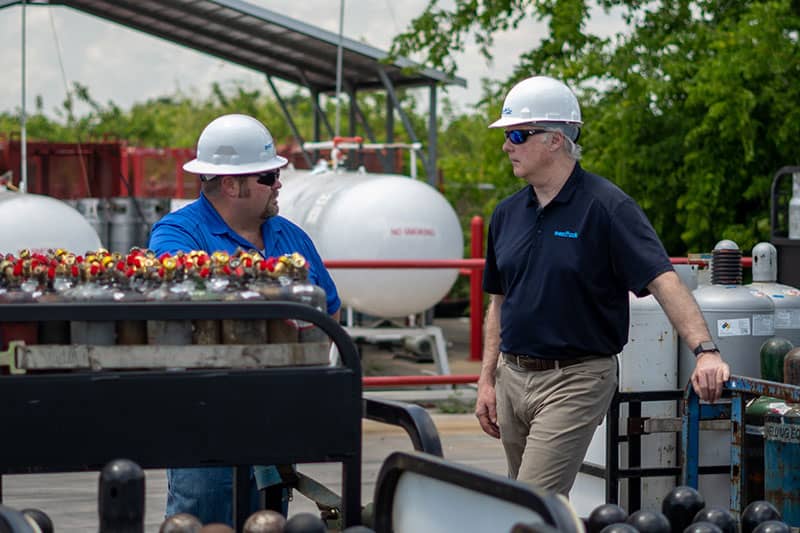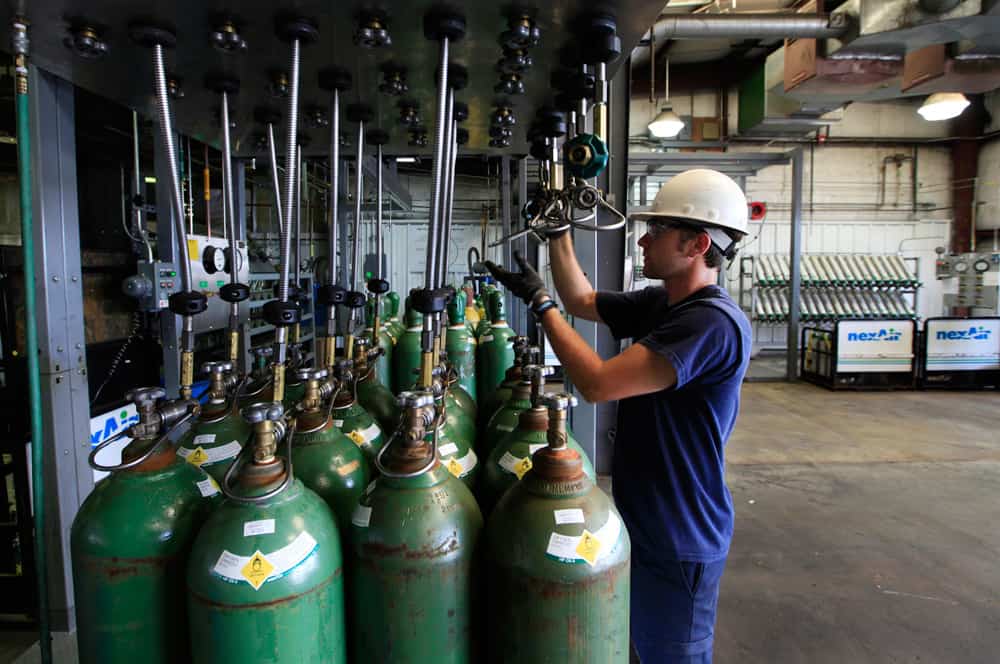Tips from nexAir Experts: Maximizing Efficiency with Bulk and Microbulk Gas Solutions
Most fabrication shops start with cylinder deliveries because the math seems straightforward. You pay for gas when you need it, no big upfront costs, and storage looks simple enough. But those monthly invoices tell a different story as production ramps up. Between cylinder rental fees, delivery charges, and the hidden costs of handling all those tanks, many operations reach a tipping point where bulk systems start making serious financial sense.
The Numbers That Matter
Bulk gas systems typically pay for themselves when you’re burning through 200-300 cylinders monthly, though microbulk systems can work with as few as 30-50 cylinders. The exact break-even depends on your gas mix and local pricing, but most shops hit that threshold faster than they expect. Purging, testing, and startup procedures eat gas that doesn’t produce finished work but shows up on every invoice.
Cylinder handling costs money in ways that don’t always register on spreadsheets. Every changeout pulls two people off productive work for 10-15 minutes. Multiply that across dozens of changes monthly, and you’re looking at serious labor hours that could be spent welding instead of wrestling with tank connections.
Microbulk bridges the gap between cylinders and full bulk installations. These systems eliminate cylinder handling entirely while requiring minimal facility prep work. The tanks are smaller than traditional bulk systems but still deliver significant cost reductions for mid-volume operations.
Installation Reality
Setting up bulk gas systems requires concrete pads, basic piping, and electrical connections for monitoring equipment. Most installations take 1-2 days and create permanent facility improvements that boost property value while cutting operating costs. The infrastructure work pays for itself through reduced gas costs and eliminated handling labor.
Smart piping design includes multiple outlet points positioned based on actual workflow rather than just equipment locations. Running shorter hoses improves mobility and reduces trip hazards while giving operators more flexibility in positioning work pieces. Our design team walks facilities to map optimal distribution layouts.
Modern bulk systems include automated monitoring that tracks usage, pressure, and potential problems. These systems provide better safety oversight than manual cylinder management while requiring less daily attention from shop personnel.
Usage Data That Drives Decisions
Bulk systems generate detailed consumption reports that reveal patterns invisible with cylinder tracking. You’ll see exactly which processes consume the most gas, identify peak usage periods, and spot inefficiencies that drain profits. This data helps optimize everything from welding parameters to production scheduling.
High consumption during specific shifts often indicates training opportunities or equipment problems. Excessive gas use might point to poor joint preparation, incorrect flow settings, or equipment that needs maintenance. Our expert KnowHow™ includes helping operations interpret usage data to find cost reduction opportunities.
Flow monitoring can catch leaks immediately rather than waiting for monthly invoices to reveal problems. Small leaks that might go unnoticed with cylinders become obvious in real-time monitoring systems, preventing waste that adds up over time.
Making the Switch
Converting from cylinders requires coordination to avoid supply interruptions during installation. Most facilities schedule bulk system installation during planned downtime or arrange temporary cylinder service to bridge the transition. Installation teams work with production schedules to minimize operational disruption.
Training focuses on system operation, monitoring procedures, and emergency protocols. While bulk systems need less daily attention than cylinder management, operators should understand basic system functions and know how to respond to alarms or supply issues.
Cost analysis should account for eliminated cylinder handling labor, reduced storage requirements, consistent gas pricing, and improved productivity from uninterrupted supply. Many operations find payback periods shorter than initially projected when all factors are considered.
Ready to evaluate bulk gas options for your operation? Our specialists can analyze current usage patterns, assess facility requirements, and size systems for optimal performance and cost savings. Contact our team to schedule a site evaluation and see how bulk solutions can help your operation Forge Forward with improved efficiency and lower gas costs.
Looking out for your future
Get your career going on the right track with nexAir
Find out how nexAir KnowHow has impacted businesses all over the Southeast
Our expertise makes us more than a valuable partner, it makes us headlines
Don't see what you're looking for?
Everything we offer is a click away and it will arrive before you know it.


